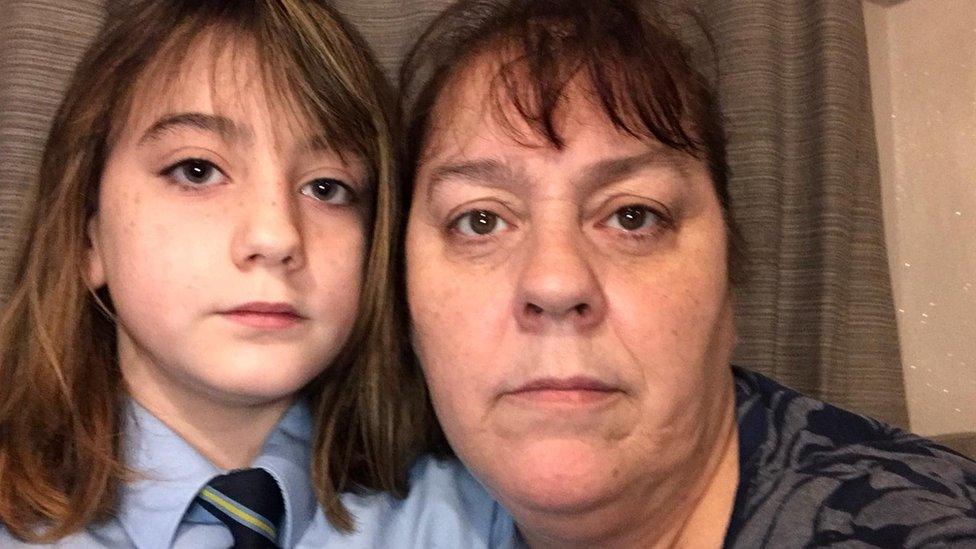Young carers: 'I couldn't see my friends for a long, long time'
- Published
Young carers: 'I couldn't see my friends for a long, long time'
Young carers like Lucie normally look to friends and charity workers for emotional support but when lockdown started all of that changed.
"I couldn't see my friends for a long, long time," said 14-year-old Lucie. "That really affected me."
Lucie, from Moodiesburn, near Glasgow, has been caring for her mum, who has cancer, for almost three years.
During the Covid-19 lockdown her mum was classed as "shielding", meaning she had to take extra care to avoid contact with people.
If she had caught the virus, the results could have been disastrous.
Lucie says this added to the anxiety that she already felt about her mum's illness.
She says it affects every aspect of her life but especially her education.
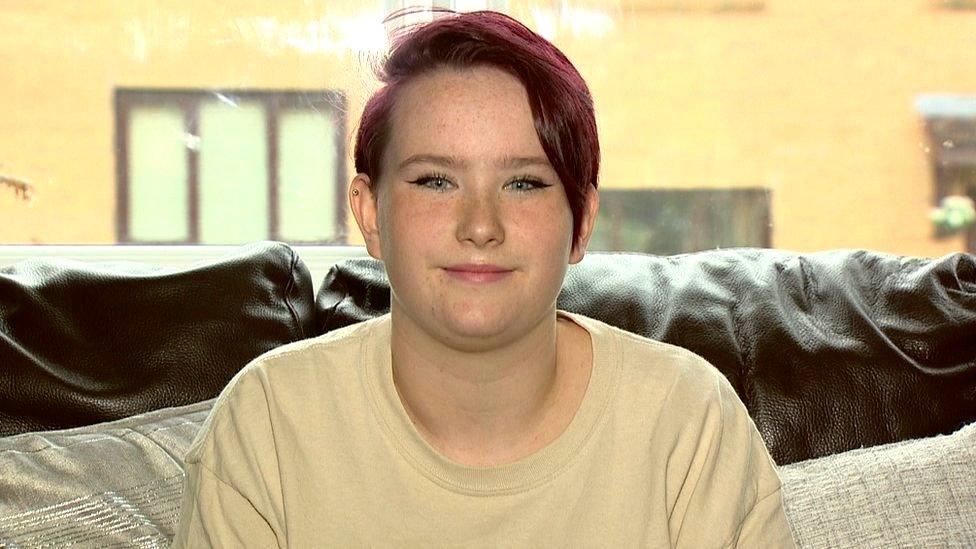
Lucie is worried about the virus and her education if she can't go into school
Even before the pandemic, Lucie worried about her mum whenever she was away from home at school.
"It's really hard to focus in school when mum is at home," Lucie says.
"I need to call her all the time, I need to text her. I need to make sure she is OK for me to be OK. "
A recent survey of young carers in Scotland showed that Lucie's situation is far from unique.
Last month, the Carers Trust revealed, external that two out of five young carers felt their mental health suffered during lockdown, while more than half were worried about their education.
Feelings of isolation
A young carer is a child or teenager who cares, unpaid, for a person who has any type of physical or mental illness, disability or addiction.
The Carers Trust says lockdown disrupted young carers' lives, cutting them off from the community and leaving them with increased responsibilities around the house.
This led to feelings of isolation and made it difficult for young carers to study at home, it says.
Lucie's mum relies on her daughter to get shopping, cook dinner and clean the house.
At the end of a long day, Lucie still has to do her homework, before she can think about talking to her friends.
And she also worries that she will fail her exams next year.
"I just need to get my head down and focus," she says.
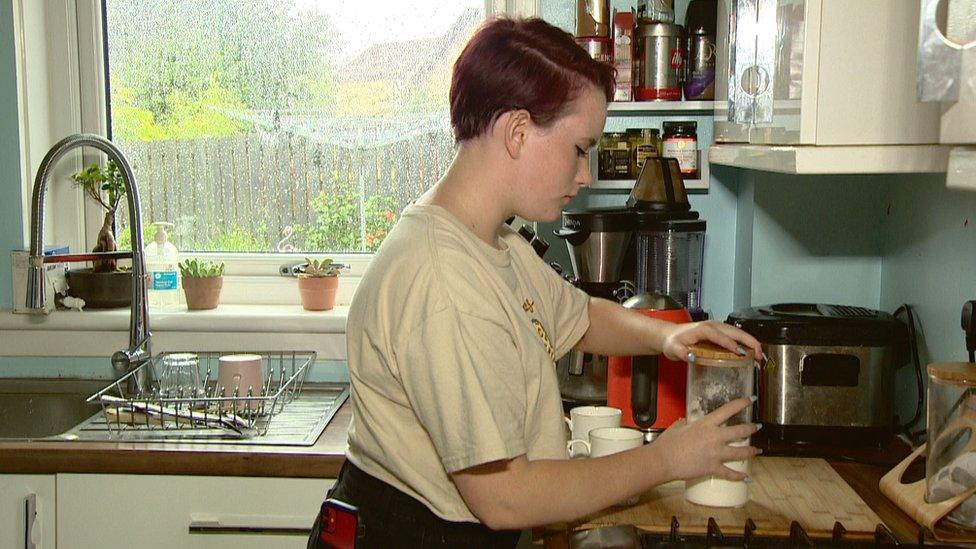
Talking about her mum's condition helped Lucie come to terms with it
When Lucie found out about her mum's condition in September 2017, she had just started high school.
She was struggling emotionally but did not want to be treated differently to the other kids.
"I was in a very bad place at the time, and it was really hard for me to even think about it or go to school," she says.
Things got better when her mum explained the cancer to her, and the family started talking about what was happening.
"I was really worried and scared and I didn't know what was happening," Lucie says.
"But now I'm a lot happier than I was."
'You've got a responsibility to look after someone'
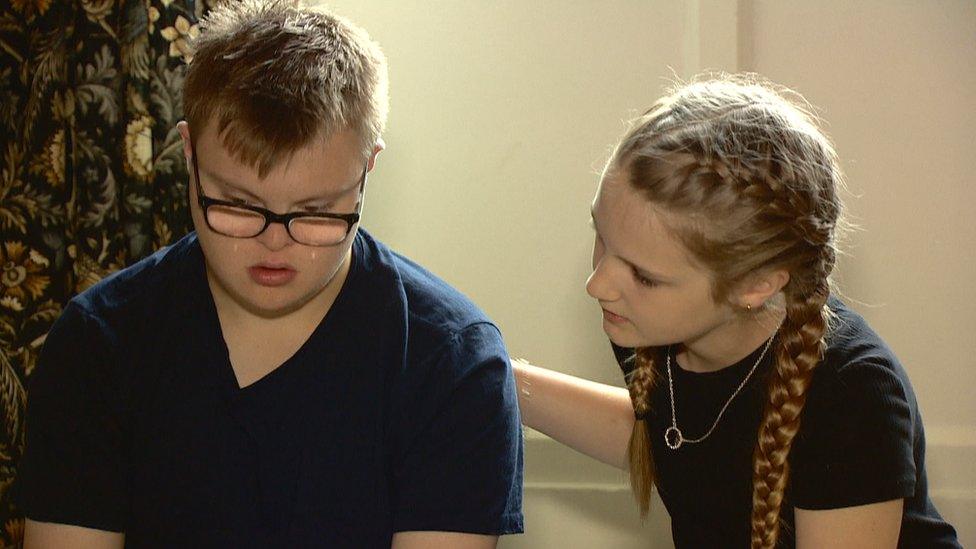
Esme can have fun with her brother while looking after him
For 11-year-old Esme, who lives near Crieff in Perth and Kinross, being a young carer comes with a lot of responsibility.
"You don't always get to do the same activities with your family that other families do," Esme says.
"So you might not get to spend all the time with your mum and dad because they might have to be looking after the person that you care for."
Esme cares for her older brother Sam, who has Down's Syndrome and autism, and needs to follow a strict routine.
"It's a good responsibility," she says. "It can be fun at times, because the person you care for can really have fun with you. And you can talk to them and laugh with them."
Lockdown has affected the support groups Esme normally has access to but a return to normality will ease the pressure on her daily routine.
"I'm looking forward to school because it gives me time to get away from my responsibilities as a young carer," she says.
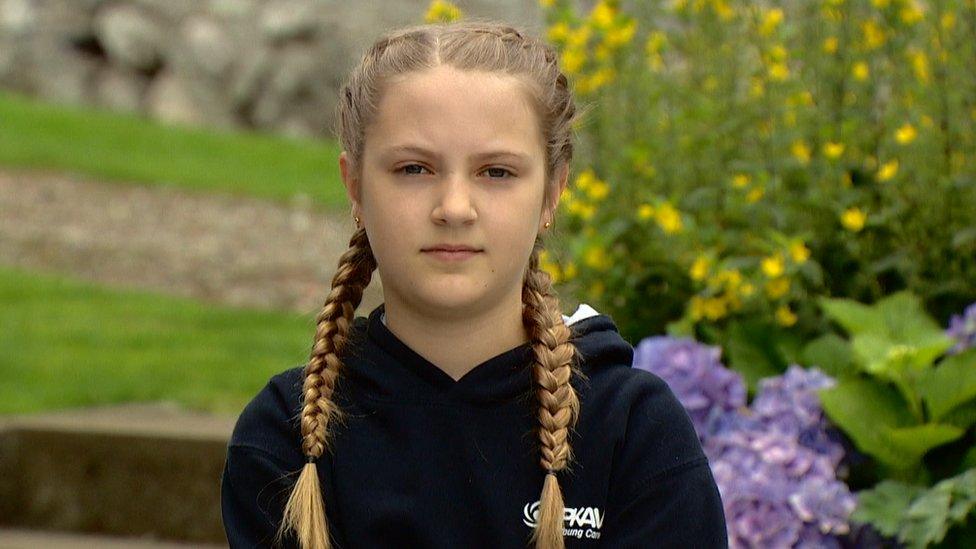
Esme says that being a young carer is a 'good responsibility'
This is a common experience among people like Esme, according to Paul Traynor, policy manager at Carers Trust Scotland.
For many young carers "going to school is a break for them", he says.
Mr Traynor also warned that during lockdown, without the respite of school, the caring role for young people was intensified.
This meant many of them felt more stressed and struggled to look after themselves.
But for those young carers who look after a person that was shielding, the return to school may not be a break.
The restrictions on people who were shielding were brought to an end at the start of August, external because infection rates had lowered.
But Mr Traynor says young carers of those who were shielding may still be worried about bringing the virus home from school.
He explained that schools are making arrangements with carers from households that were shielded, such as a mixture of in-person and virtual learning, on a case-by-case basis.
But the support and respite that schools offer will still be missed.
"Many young carers might be keen to go back into school but actually fear going into school as well, and the impact that could have on their cared-for person," he adds.
- Published25 June 2020
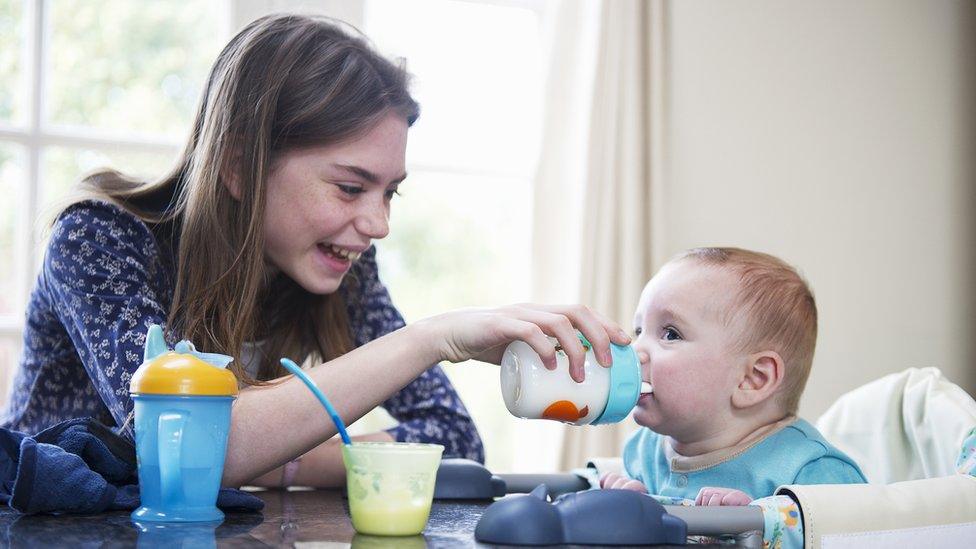
- Published17 February 2020
